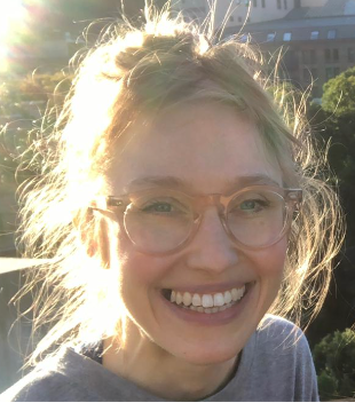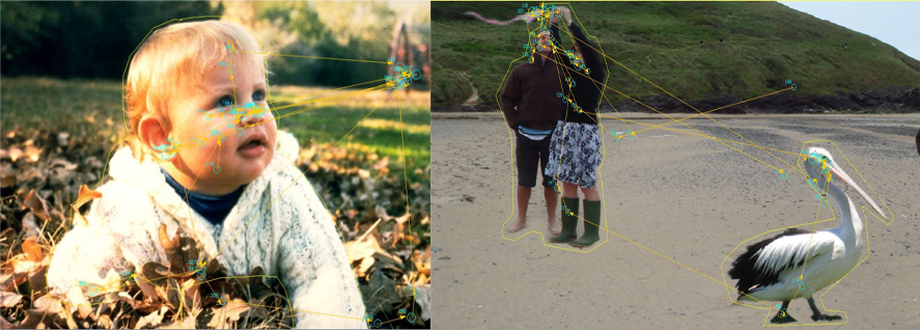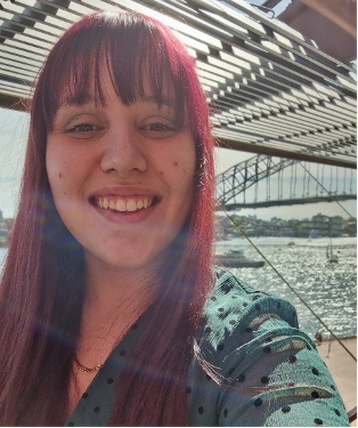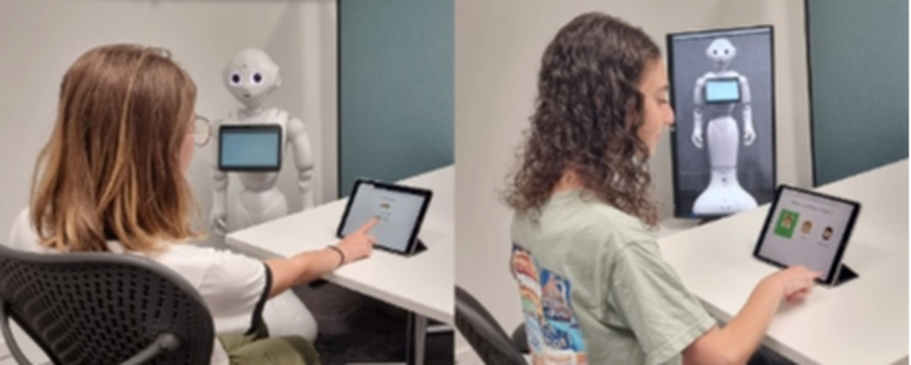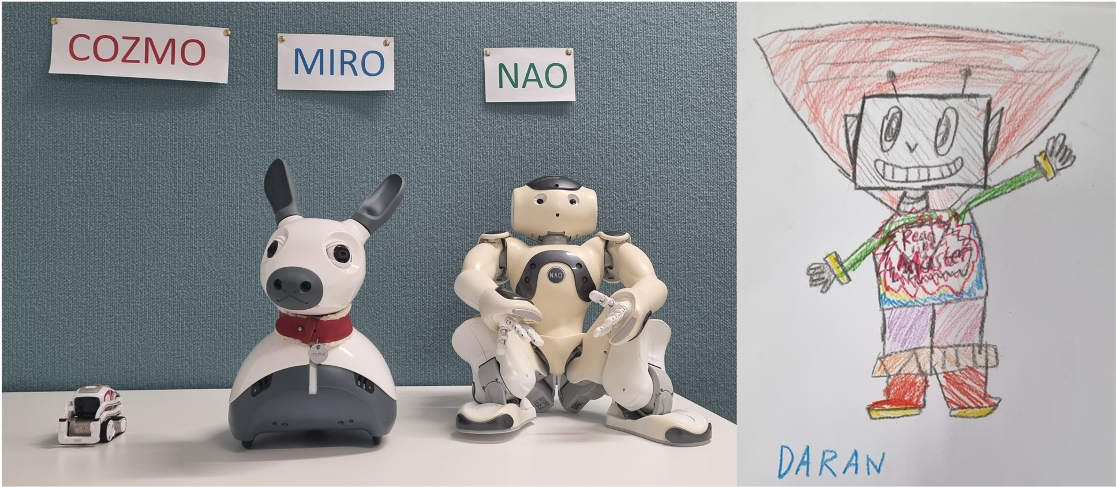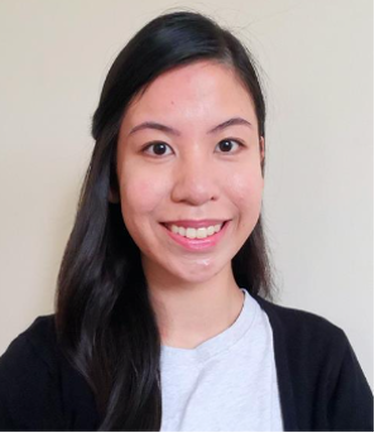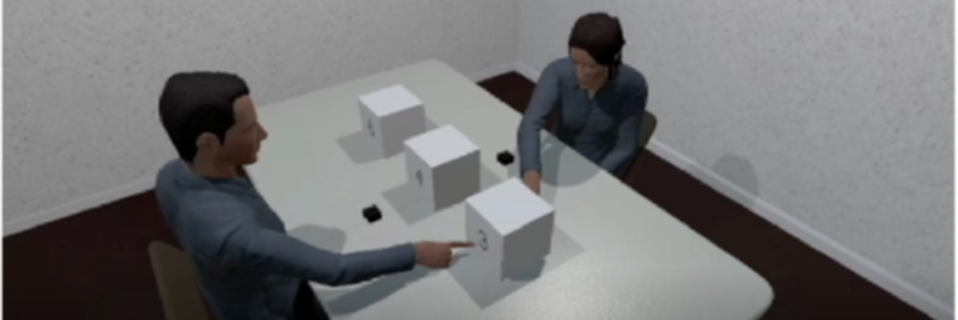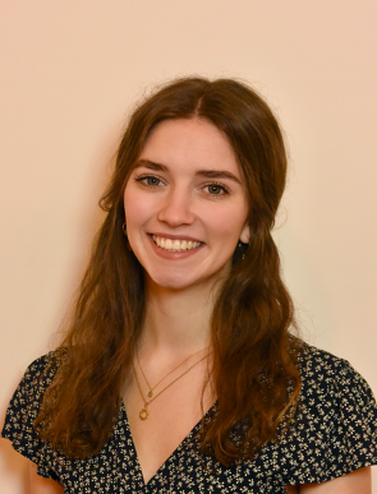Friederike Charlotte HechlerIDEALAB PhD CandidateI am a Cotutelle PhD candidate at Macquarie University and Universität Potsdam. I am fascinated by the manifold synergistic aspects of social cognition. The main question driving my research is “How do action and perception shape each other during social interaction?” My research examines both verbal and non-verbal forms of communication, be it face-to-face or in virtual exchanges. My special focus lies in understanding how communication can be made more inclusive for all neurodiverse people.
I am a “Zappelphilipp” – seizing every free minute to move – but my heart belongs to dance, which is the origin of my scientific curiosity in the action-perception loop. My favourite things are teaching ballet and contemporary improvisation, drawing and reading. |
Colleen MurphyPhD Candidate & Clinical PsychologistI am a clinical psychologist and PhD Candidate studying social information processing in patients diagnosed with schizophrenia. In my research, I have been developing new eye-tracking paradigms to examine how individuals naturally gather social information, when viewing complex scenes containing social and non-social information and when viewing faces expressing different emotions and gaze signals.
My favourite things are travelling, cats and chocolate. |
Kristina HairaMasters CandidateDuring my undergraduate journey, I found myself drawn to the intricate dynamics of human-robot interactions, which led me to earn a double degree in a Bachelor of Science, specialising in Human Biology with a Bachelor of Cognitive and Brain Sciences. Now, as I pursue a Masters of Research at Macquarie University under the guidance of Dr. Nathan Caruana and Prof. Emily Cross, my research centers on exploring the impact of embodied robots on task engagement. Participants in my study interact with either an embodied robot or a screen-based version while engaging in language learning activities. I’m exploring the opportunities and challenges of using social robots as an educational tool.
My favourite things are cherishing moments with my dog, Toto, immersing myself in books, and enjoying card games with family and friends. |
|
Hannah Cahill
Masters Candidate
I began my career in information management while working towards librarianship. I later earned a double degree in Psychology and Cognitive Science from Macquarie University. During my studies I developed an interest in the science of reading and psycholinguistics and undertook a placement with Macquarie University’s Reading Clinic under the supervision of Prof. Genevieve McArthur evaluating treatments that claimed to improve poor reading. I am currently doing the Masters of Research at Macquarie University supervised by Dr. Nathan Caruana and Prof. Emily Cross. My research mostly uses qualitative methods to examine the opportunities and challenges of using social robots as an education tool for children with reading difficulty and anxiety.
My favourite things are reading, playing table-top games, arts and crafts, and cuddling with her Maine Coon cat Lyra. |
Isaiah FabbroMaster of Psychology (Clinical)I am a Clinical Psychology Masters student and Casual Academic at Flinders University. Alongside my studies I have had the privilege to work as a Human Services Professional for Uniting Communities in several roles supporting members of our community. A recurring theme in my roles as an In-Shift Supervisor at Lifeline, and as an Assessment & Liaison Officer at Homeless Connect, is the significant impact of mental health conditions on individuals' daily functioning, posing considerable challenges to their wellbeing. Having witnessed the impact that complex mental health conditions have on people’s wellbeing, I was inspired to embark on research with Dr. Nathan Caruana to understand and mitigate social stigma for people with schizophrenia; a complex mental health condition I aspire to work with in my future clinical practice as a psychologist.
My favourites things are travel, quality time with my loved ones, some form of exercise daily, and reading. |
Katie AitkenHonours StudentI am a psychology Honours student, studying at the beautiful Flinders University. I am interested in pursuing clinical psychology, with aspirations of specialising in neurodivergent and LGBTQI+ emotional development in adolescents. My previous interest and studying of Information Technology during high school, coupled with my current undergraduate studies in psychology, inspired me to complete my Honours thesis with Dr Nathan Caruana in the HAVIC Lab.
My favourite things are playing tennis, and any games involving Mario! |
Cher-Lynne (Cherie) WeeHonours StudentI am a psychology honours student at Flinders University. My goal is to become a clinical psychologist and researcher in the field of neurodiversity. I previously worked as private tutor specialising in English language development, which grew my interest in what constitutes effective communication and how miscommunication arises.
With the guidance of Dr. Nathan Caruana and the HAVIC Lab, I am excited to better understand communication dynamics, and how technology may facilitate social interactions and educational outcomes for neurodiverse individuals. My favourite things are my cats Mojo and Mochi, quality time with loved ones, and my indoor plant collection. |
Cooper StarkHonours StudentI am a psychology Honours student at Flinders University, pursuing a future career in clinical neuropsychology. I am fascinated by the idea that we, as individuals, interact with our environment in different ways, specifically regarding neurodivergence. I was drawn to the research by Dr Nathan Caruana involving joint attention and its impact on effective communication, which has led me to complete my honours thesis with him in the HAVIC Lab.
My favourite things are indoor plants, playing online games with friends, and looking after my labradoodle Oakley. |
Glicyr (Ann) Perez
Research AssistantI am involved in research that uses virtual reality to explore human social interactions. I first joined the lab as an undergraduate intern in 2021; initially conducting a systematic review of empirical research applying virtual reality technology in autism research. Since this time, I have become involved in coordinating several dyadic virtual reality studies which explore how humans display and process non-verbal social cues, particularly eye gaze and hand gestures. I am passionate about data analysis and spend much of my time in the lab building analysis pipelines for our dyadic interaction studies.
My favourite things are pop dancing, sharing meals with friends and family and long scenic hikes. |
Eva von ButlerDAAD Rise Intern
I am a cognitive science student at Osnabrück University, currently completing a DAAD Rise Internship in the HAVIC and SoBA Labs.
My research project is exploring the behavioural dynamics of social interactions involving autistic and non-autistic individuals. The study approach dissociates from the traditional individual-centric deficit model often associated with autism in the medical context and considers social interaction difficulties as a two-sided/ bidirectional interplay. My research is particularly focused on better understanding the role that stigma plays in shaping social interaction outcomes by closely interrogating the behaviours of non-autistic people when they interact with autistic people. My favourite things are art and climbing. |
